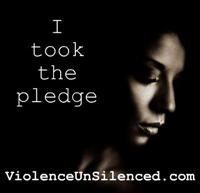Here are some examples of financially abusive behavior:
- Giving you an allowance and closely watching what you buy.
- Placing your paycheck in their account and denying you access to it.
- Keeping you from seeing shared bank accounts or records.
- Forbidding you to work or limiting the hours you do.
- Preventing you from going to work by taking your car or keys.
- Getting you fired by harassing you, your employer or coworkers on the job.
- Hiding or stealing your student financial aid check or outside financial support.
- Using your social security number to obtain credit without your permission.
- Using your child’s social security number to claim an income tax refund without your permission.
- Maxing out your credit cards without your permission.
- Refusing to give you money, food, rent, medicine or clothing.
- Causing visible bruises and scars so that you are too embarrassed to go to work.
- Using funds from your children’s tuition or a joint savings account without your knowledge.
- Spending money on themselves but not allowing you to do the same.
I'm Experiencing Financial Abuse
If you partner does any of these things, you are probably in an unhealthy or abusive relationship. Financial abuse is usually coupled with emotional or physical abuse.If you are not in control over your finances, or if your partner has removed money from your bank account, it can seem very scary to leave an abusive relationship. There are many organizations who can help you “get back on your feet” and get control over your finances -- some even provide short-term loans to cover important expenses as you escape an abusive relationship. Chat with a peer advocate to learn more about local resources.
You may also want to talk to someone you trust, like a friend, family member or legal professional, about getting a protection order. Whether you decide to leave or stay, consider making a safety plan that includes setting aside funds in a secret location.
www.loveisrespect.org










No comments:
Post a Comment